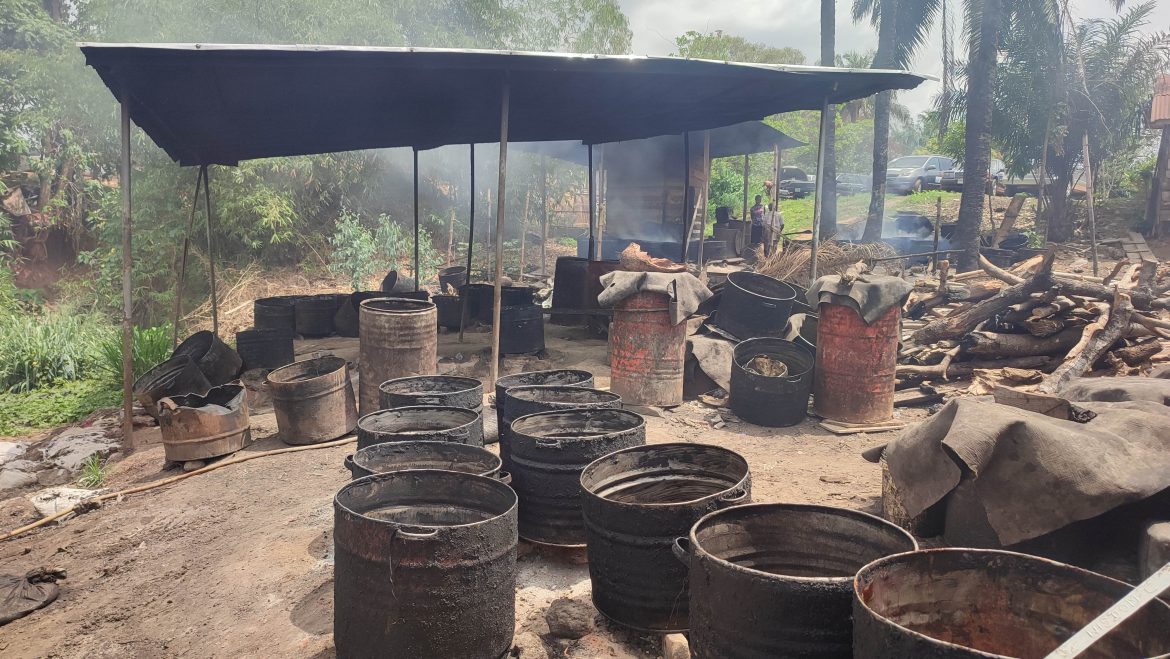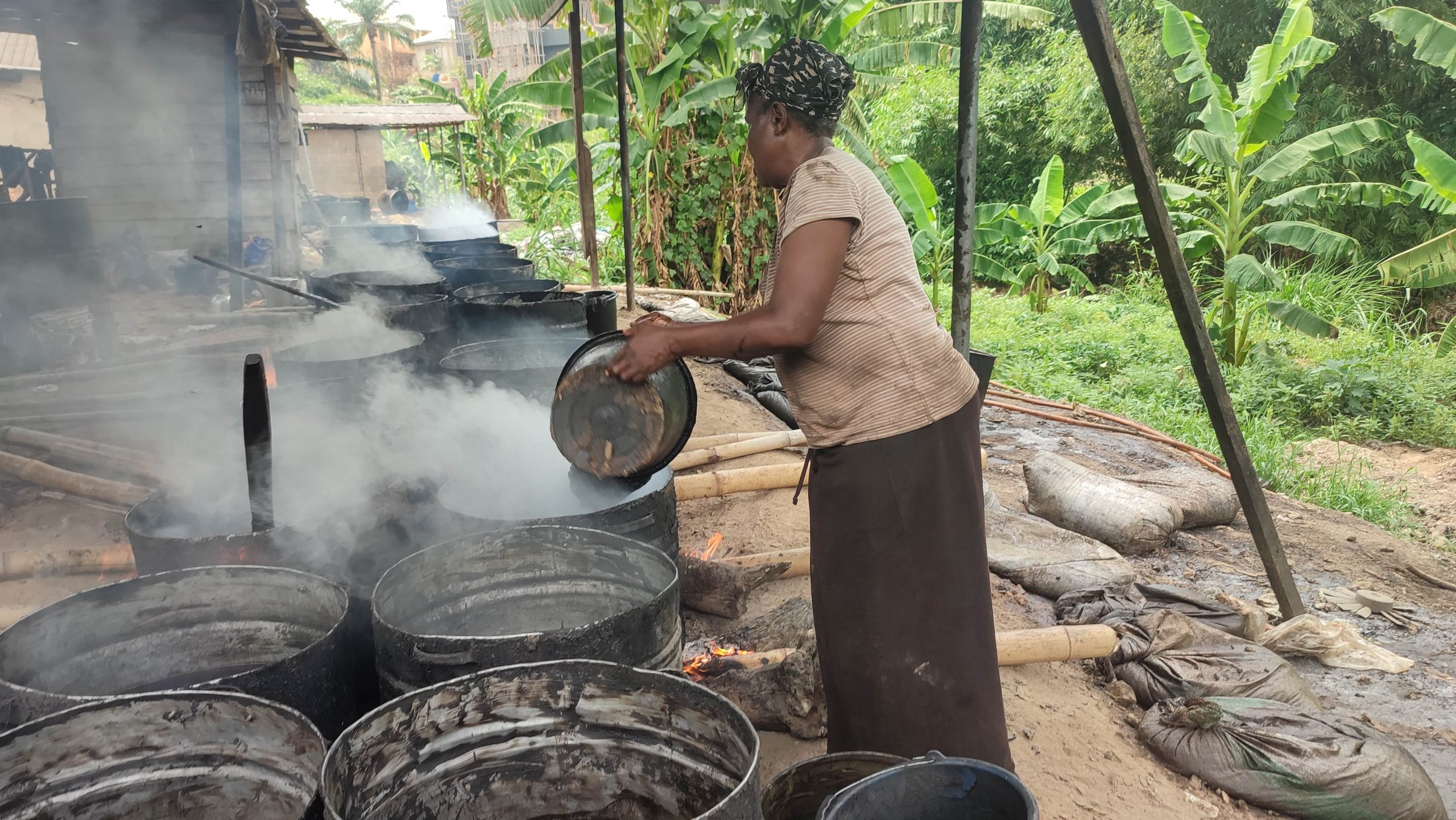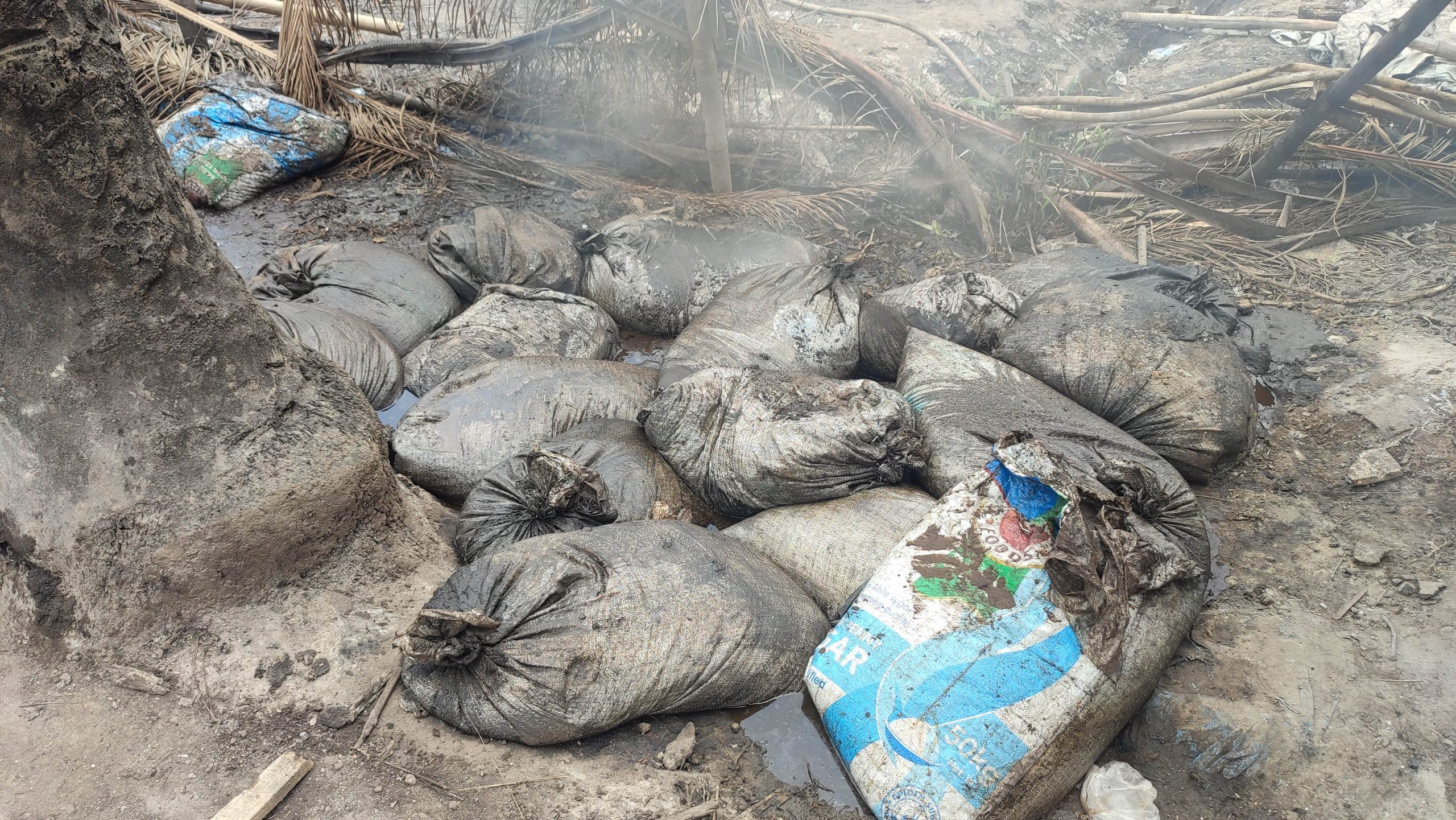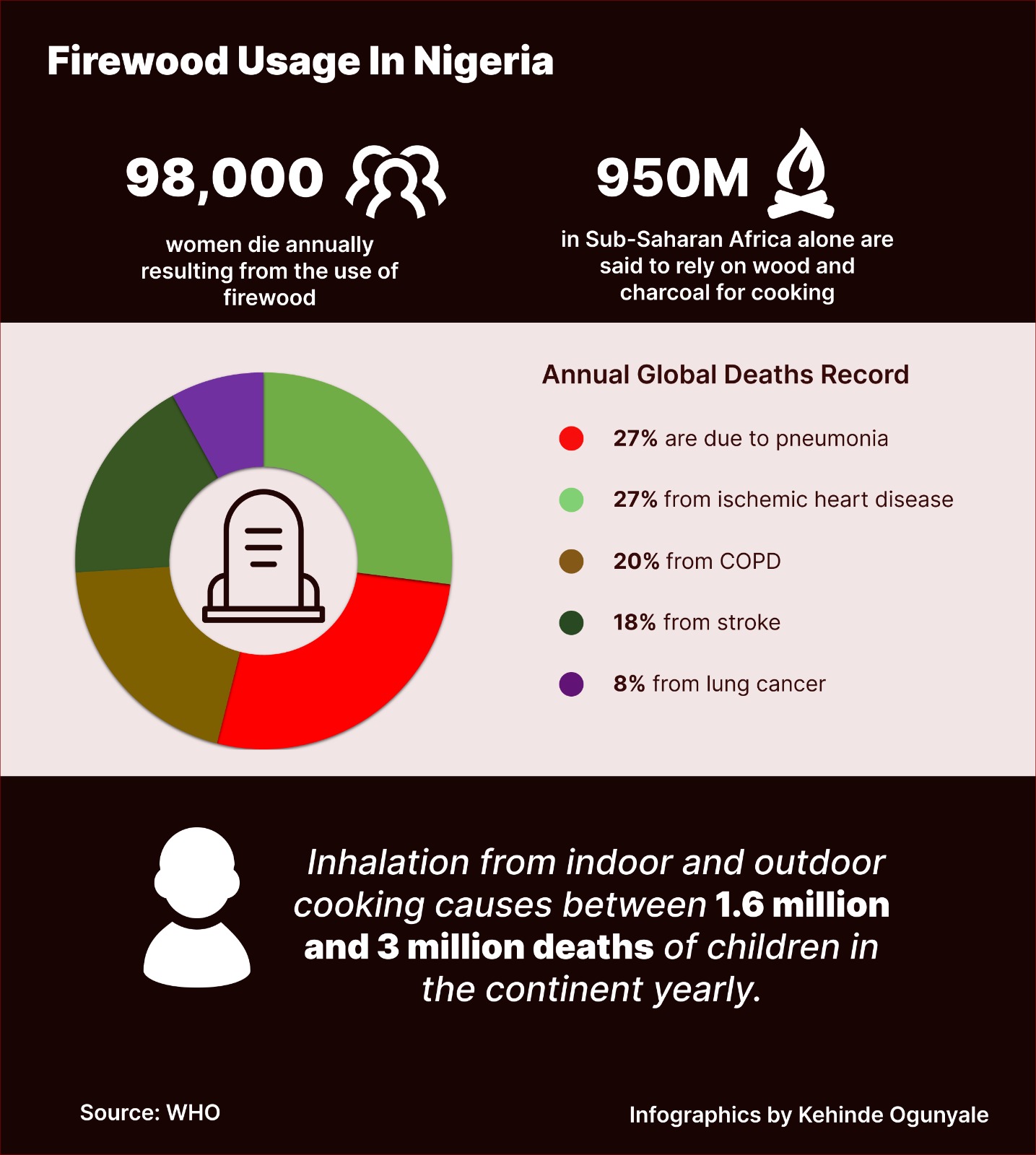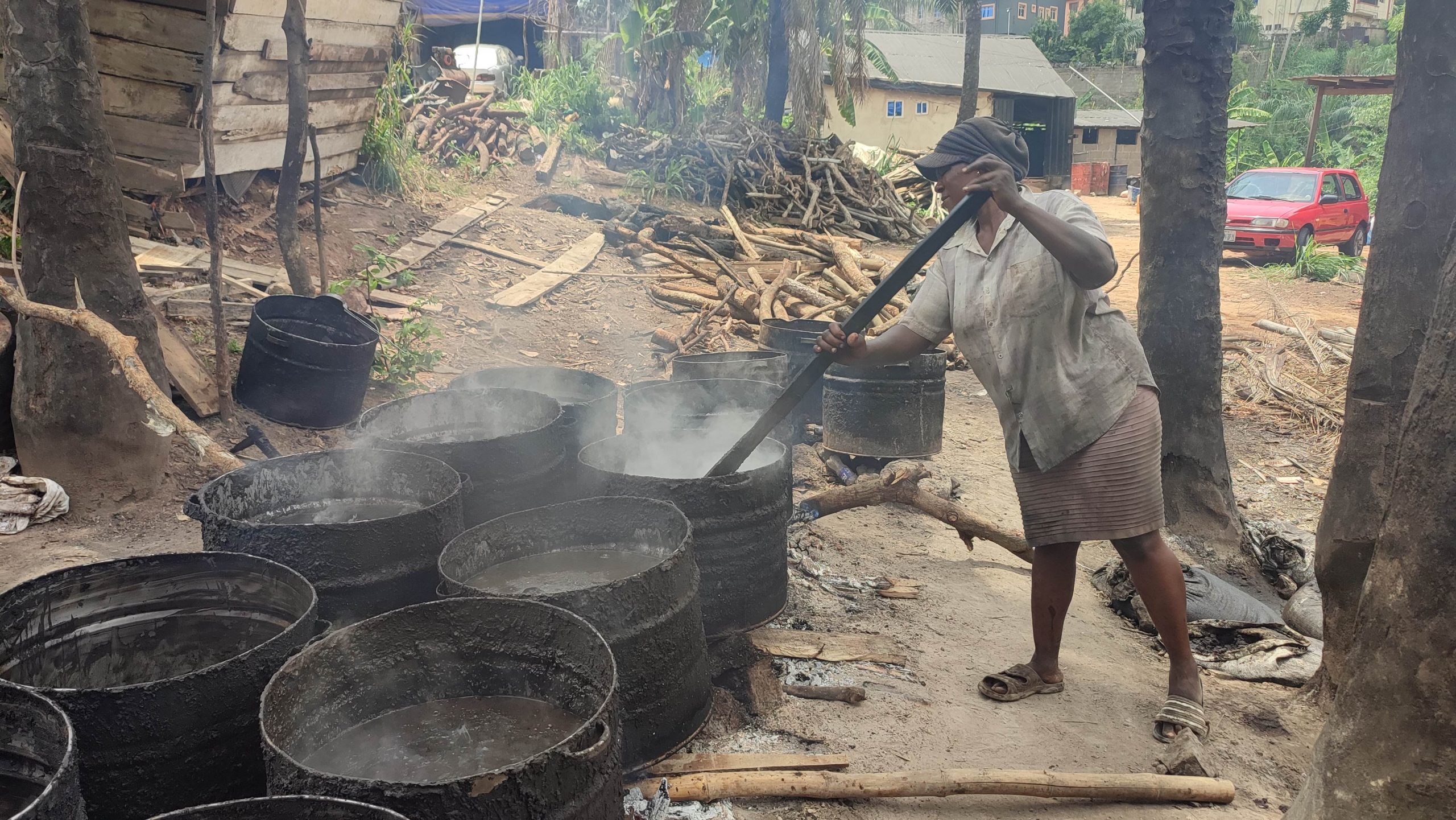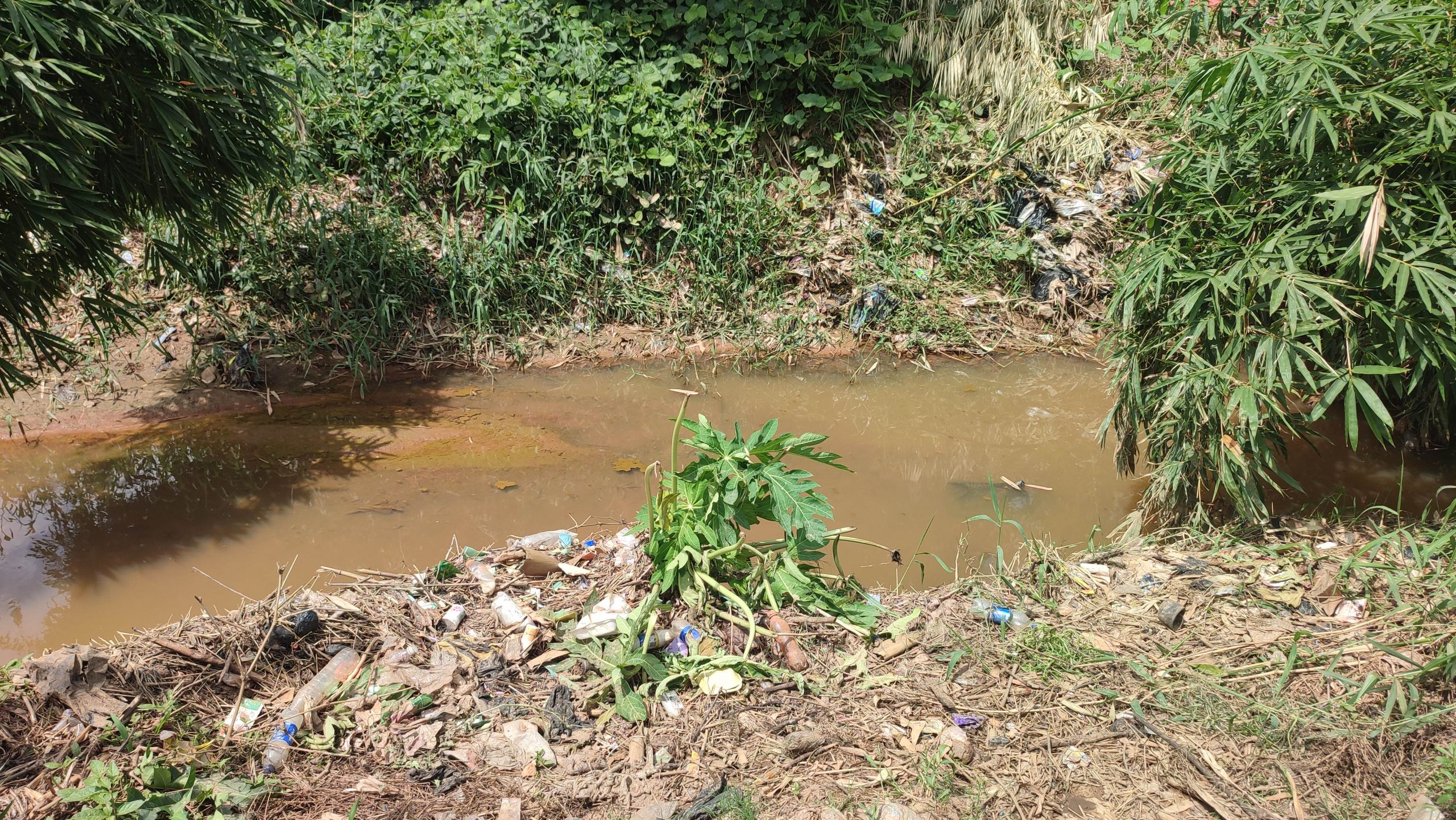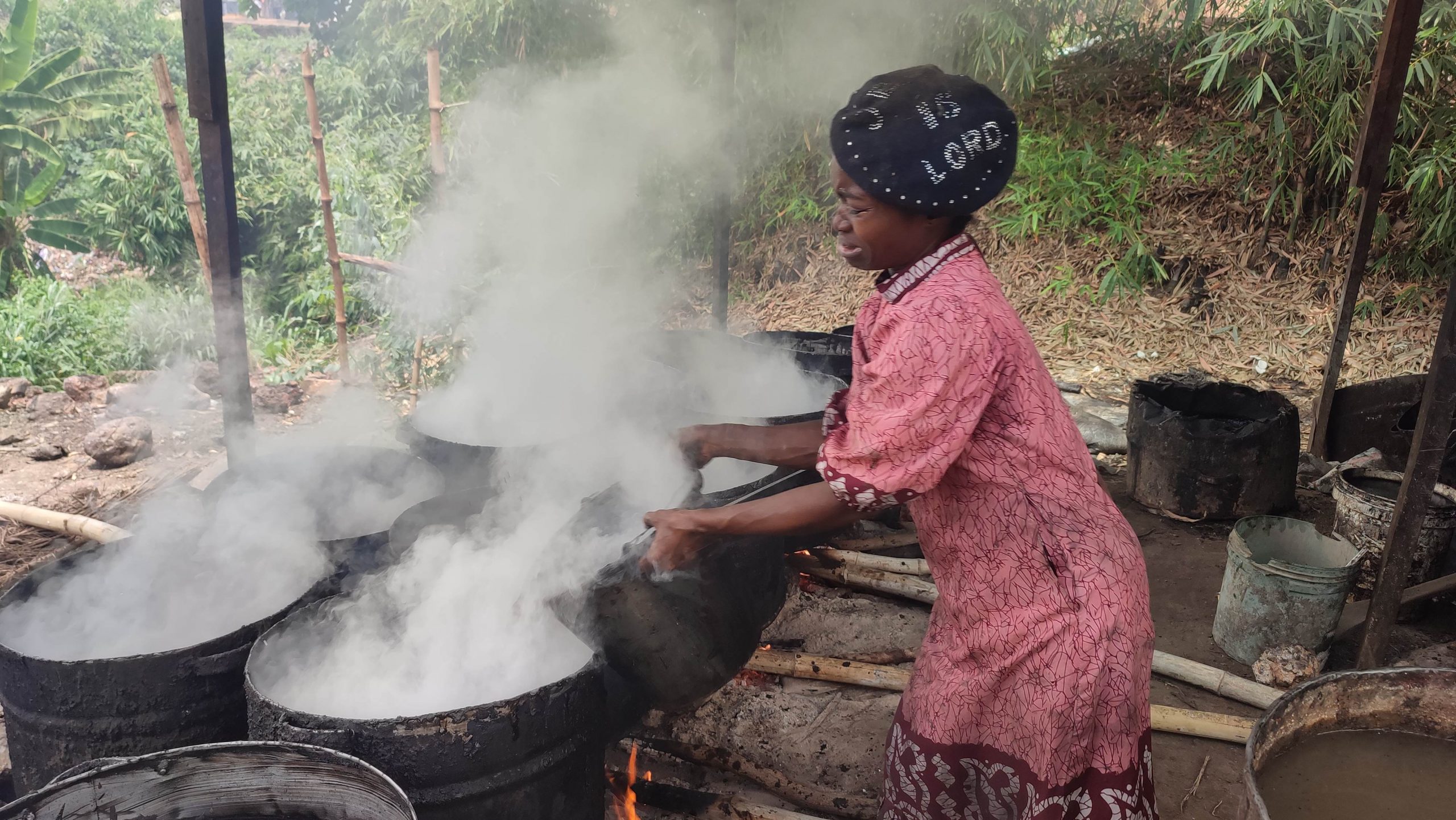In the first of a three-part series, Arinze Chijioke, Elijah Akoji, and Simon Ekemini examine the success of UNICEF’s Dietary Diversity Project in Kano State, Nigeria. The project, which aims to improve the nutritional status of children under five by increasing the diversity of their diets, has shown promising results.
In 2018, Hadiza Garba, a resident of Bichi local government in Kano State, discovered that her son, Haruna, was not growing or putting on weight at the expected rate. He was unusually irritable and always had slow energy levels and tired more easily than other children.
Haruna was eventually diagnosed with malnutrition at Rasheed Shekoni General Hospital in Dutse, Jigawa State. Malnutrition refers to deficiencies or excesses in nutrient intake, imbalance of essential nutrients, or impaired nutrient utilization.
The doctors determined that Haruna had been fed a diet that was too low in protein. Between six and eight months of age, he should have started eating a variety of foods, including milk, meat, egg, other proteins, fruits, and vegetables. However, he was already being fed tuwo, a category of solid meals made from rice, corn, or millet flour with a range of soups, often without any protein.
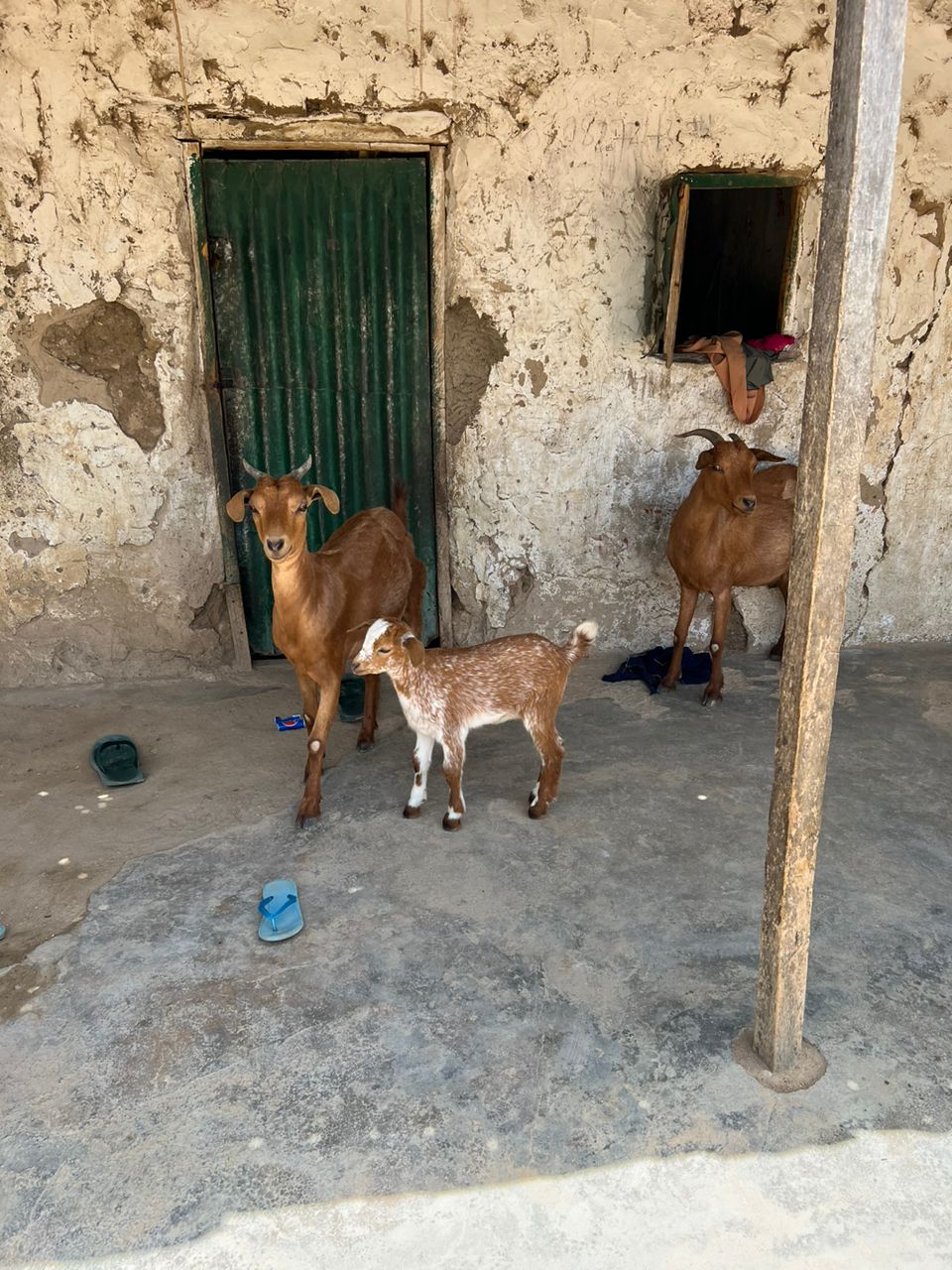
Some goats belonging to Habiba Abdulrahaman
Hadiza Garba was unaware of the importance of a balanced diet for her son’s health. Her story is not unique. Far too many children are not fed at the right time or with the right frequency and dietary diversity needed to grow and develop to their full potential.
The burden of food poverty
In low- and middle-income countries, two-thirds of children under five, or 478 million, experience food poverty. This means that they are not fed the bare minimum number of food groups they need in early childhood.
In Nigeria, one in three children is stunted and one in ten is wasted. This means that they are not growing and developing as they should. Close to 19.8 million Nigerian children are undernourished, giving Nigeria the highest burden of stunting in Africa and the second highest in the world.
A 2018 Nigeria Demographic and Health Survey report found that Kano State had the highest number of malnourished children in Nigeria. This was attributed to poor infant feeding practices, such as low dietary diversity and minimum meal frequency. The report also found that children in Bichi and Sumail local government areas were the most affected.
Garba could not afford the Minimum Acceptable Diet (MAD) or treatment for her son, Haruna. She brought him home and resorted to self-help. The MAD is a binary indicator of infant and young child feeding practice that assesses the quality and sufficiency of a child’s diet between the ages of 6 and 23 months, apart from breast milk.
“The lack of money always caused quarrels between me and my husband at home,” she said. “Sometimes, we even went without food in the house. I did not have any job.”
Solution at last
Garba was helpless and had to borrow sometimes to buy eggs and other diets for her son till 2019 when UNICEF implemented the Dietary Diversity Project to address malnutrition in children aged 6-23 months in Kano State.
While it was inaugurated on October 23rd 2018 by the former governor of Kano state, Abdullahi Ganduje, the Dietary Diversity project started in September 2019 and was implemented through a partnership with the government, traditional institutions, and local NGOs (Kano Emirate Council Committee on Health and Human Development (KECCoHHD) and Society for Women Development and Empowerment of Nigeria (SWODEN)).
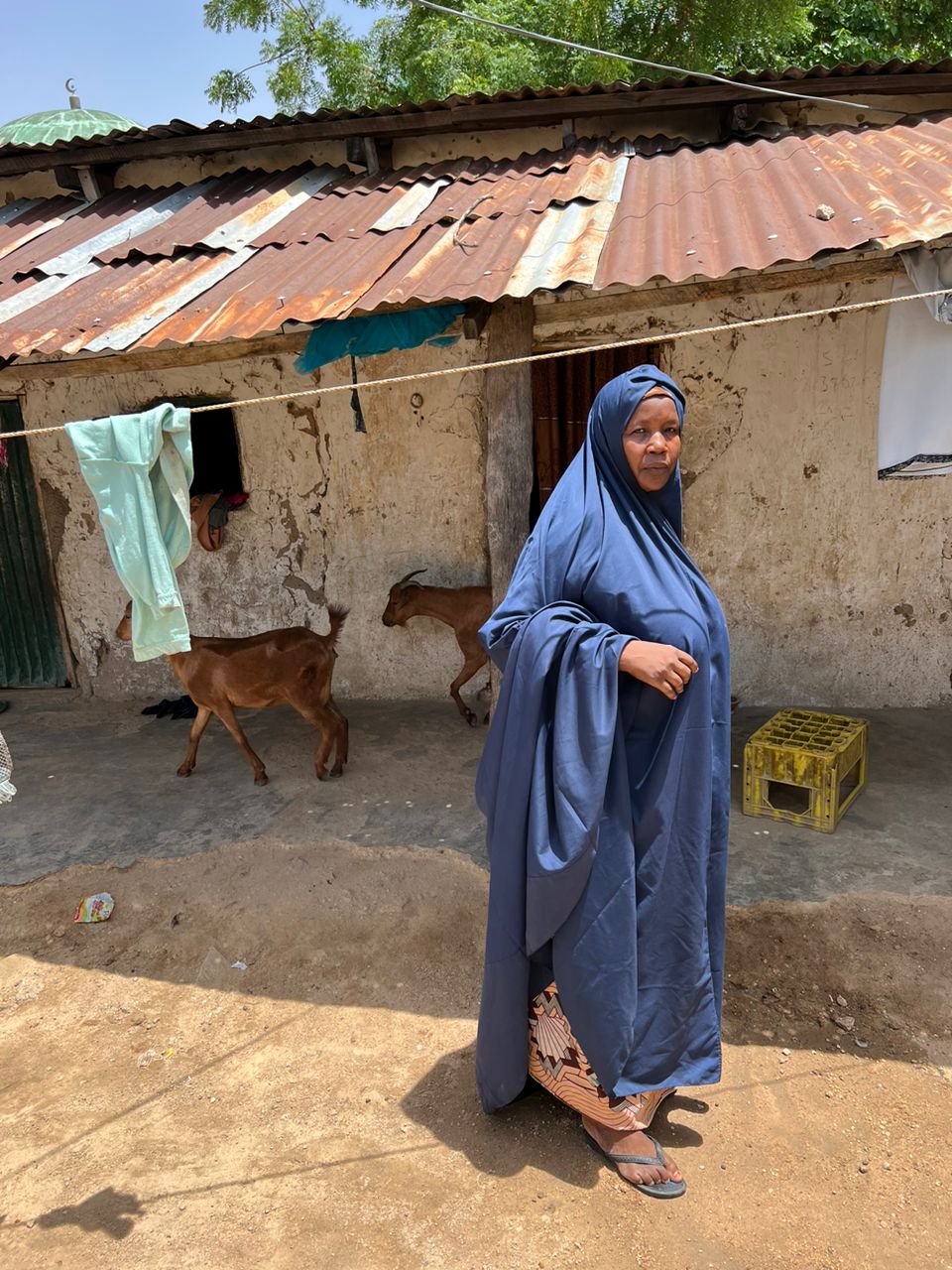
Habiba Abdulrahaman
Elhadji Diop, Nutrition Manager, UNICEF Field Office Kano, said that the objective of the project was to improve Infant and Young Child Nutrition which is a primary factor in under-5 malnutrition through the promotion of dietary diversity among children aged 6 to 23 months in the targeted LGAs of Kano state from 28% to 50% by 2020 which would contribute in the long-term to the reduction of malnutrition.
Under the project, 1,080 caregivers of children aged 6-23 months of age received three chickens each for poultry farming to improve access to animal-source foods. In total, 3,240 chickens were distributed to 1,080 caregivers.
Additionally, three goats were also distributed to each of the 72 community support groups women chosen by the communities and created in the two LGAs. Each group had 12-15 caregivers. A total of 216 goats were therefore distributed.
As she received her share, Garba constructed a Goat Pen and a Poultry where she kept them for reproduction. As her hens laid eggs, she boiled some and gave Haruna and her other children. She also sold some of the eggs and took care of other family needs.
“As the goats reproduced, it increased the milk available which I used to also feed my children and also help other women whose children grew without enough breast milk,” she said. “I also sell them in the market and earn more money,”.
Caregivers also received seeds to grow vegetables such as spinach, and tomatoes and agricultural extension workers visited weekly to teach them how to take care of their livestock and vegetable farms.
“A total of 4,320 vegetables and fruits seedlings were also distributed to the 1,080 caregivers of children aged 6-23 months across the two LGAs at 4 seedlings per caregiver,” Diop explained.
Overall, the intervention has helped to ensure that Garba’s children had a more varied and nutritious diet. Now, she is on good terms with my husband because we eat well and there is money for other household needs.
Extending the goodwill
As soon as Habiba Abdulrahaman, a resident of Kofar Kudu received her male and female goats and chicks to enable them to reproduce, she gave them to her daughter who had given birth to a set of twins at the time and that helped her in providing the necessary diets for them after she (the daughter) stopped giving them breast milk.
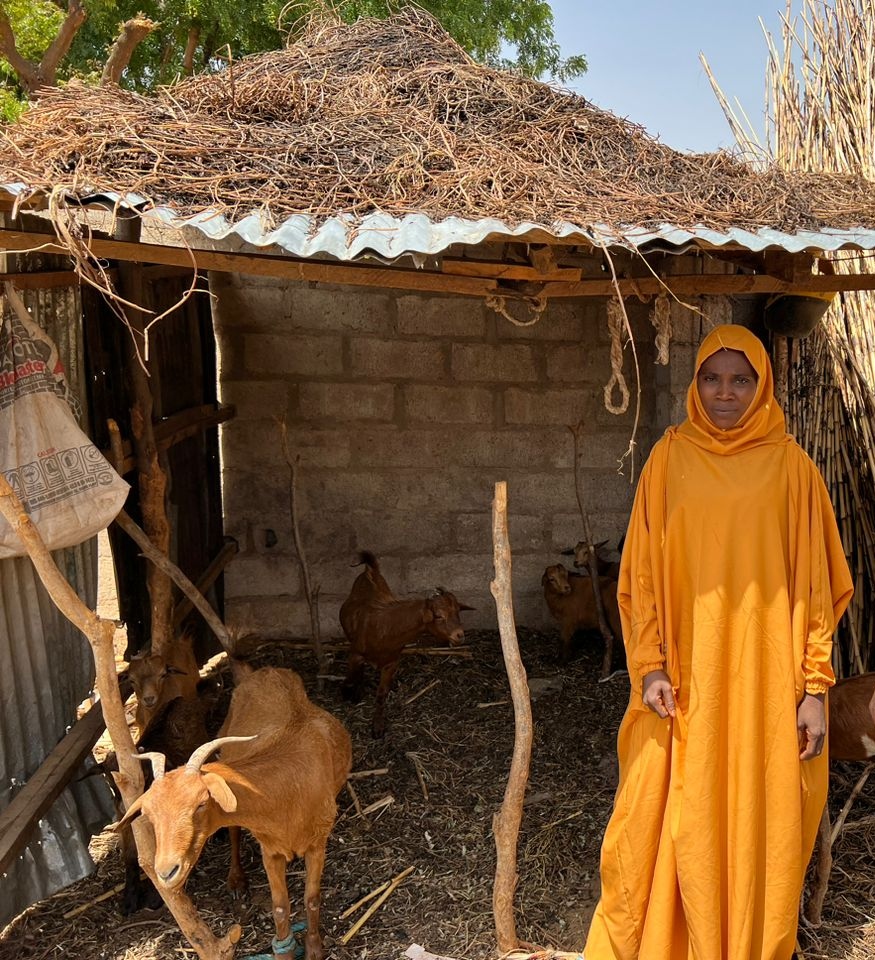
Hadiza Garba in her goat Pen
“I also made sure that she fed them with meals that had Vegetables as they grew older and that has helped them maintain the acceptable Diet,” she said. “I am happy to have benefitted from the project,”.
Like Garba, Unmi Musa’s daughter was diagnosed with Malnutrition when she was two. After it was managed at the Sumaila General Hospital, with support from friends who bought food for her daughter, Unmi returned home, worried about how she will get the necessary diet her unborn children will need to survive.
Thankfully, she was selected and benefited from the dietary project. Her goats and chickens have reproduced and she ensures that she feeds her children with at least 5 eggs whenever the chicks lay ten and diversifies their meals after six months.
“I also eat the egg and we have not had any case of malnutrition again,” Musa, who is also a resident of Kofar Kudu said. “I sell the goat and earn more money for the family,”.
Project setbacks
Among the challenges that were experienced during the project were access to water-especially during the dry season- which is the main challenge in sustaining home gardening. To mitigate that, Diop said that community gardens were planted close to water sources.
To deal with the challenge of disease outbreaks in chickens and goats, the project linked the communities with veterinary services to sustain animal husbandry practices.
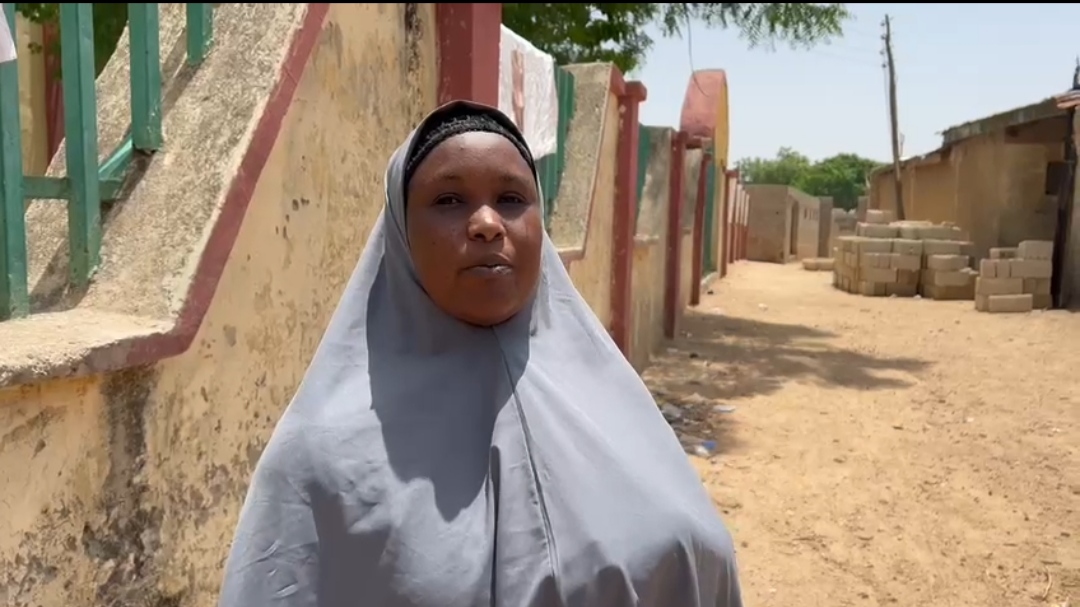
Unmi Musa, one of the beneficiaries
“Leveraging on the influential role of the institutionalized Emirate Council has been key to mobilizing communities and fostering buy-in on home gardening and animal husbandry practices,” said Diop.
Overall, Diop said that there is an improved consumption of animal-source foods amongst children aged 6-23 months state and communities have started buy-in to sustain homestead food production.
“The project’s midline assessment, conducted in 2022, indicated improved availability of diverse food within households, including animal source foods, “he said. “Evidence-informed advocacy has led to buy-in at the state level as cost estimates from this project have been used to inform the development of Costed State Government 5-year Multi-sectoral Plan of Action on Food and Nutrition,”.
This story was produced with the support of Nigeria Health Watch through the Solutions Journalism Network, a nonprofit organisation dedicated to rigorous and compelling reporting about responses to social problems.
